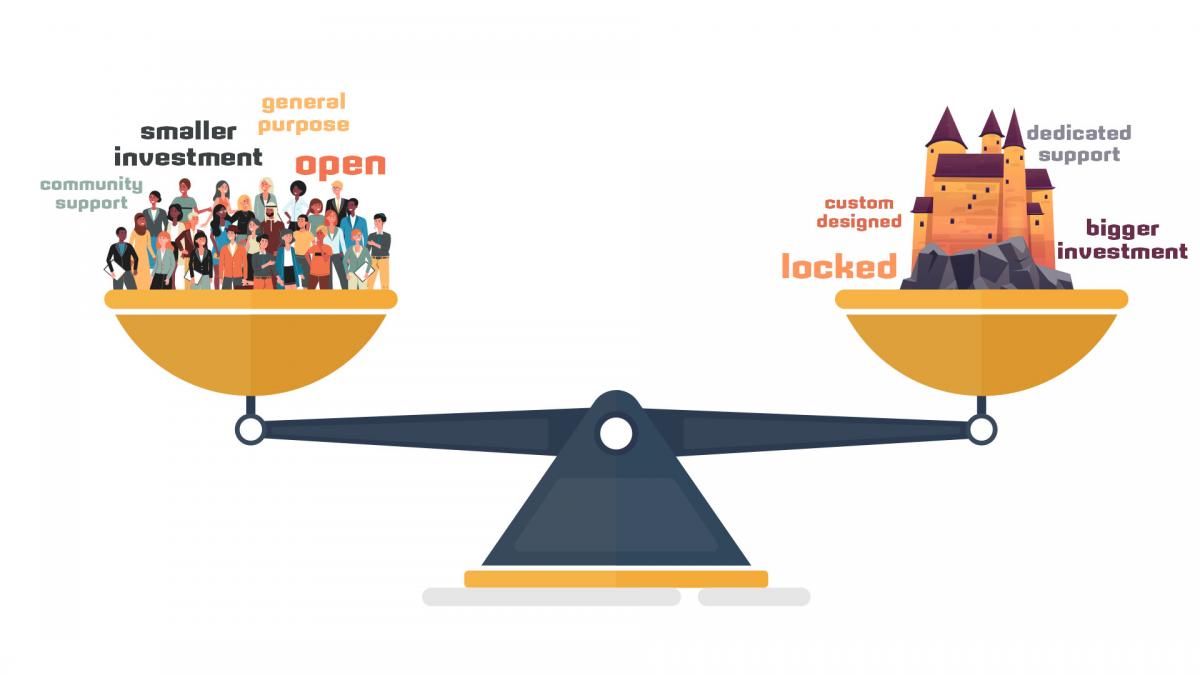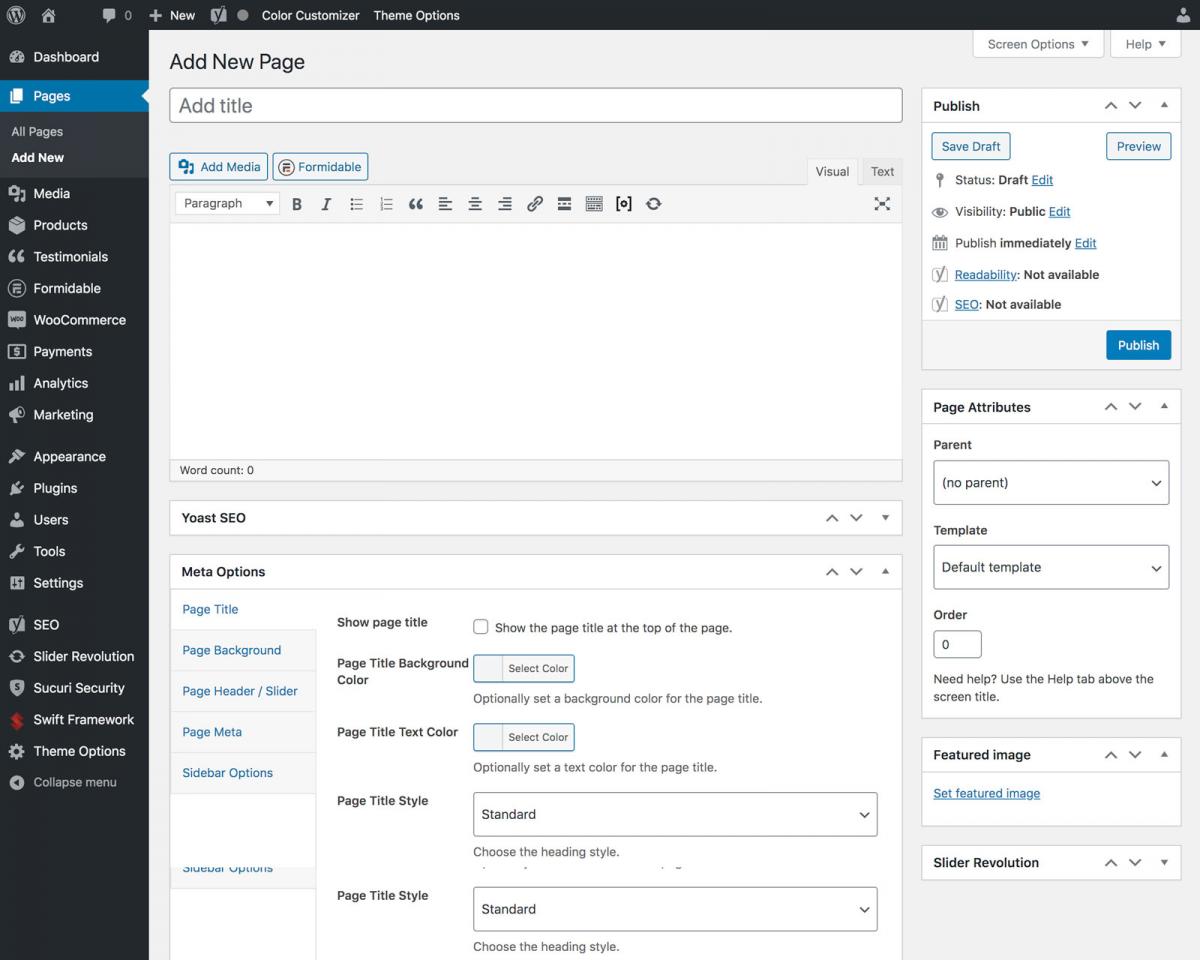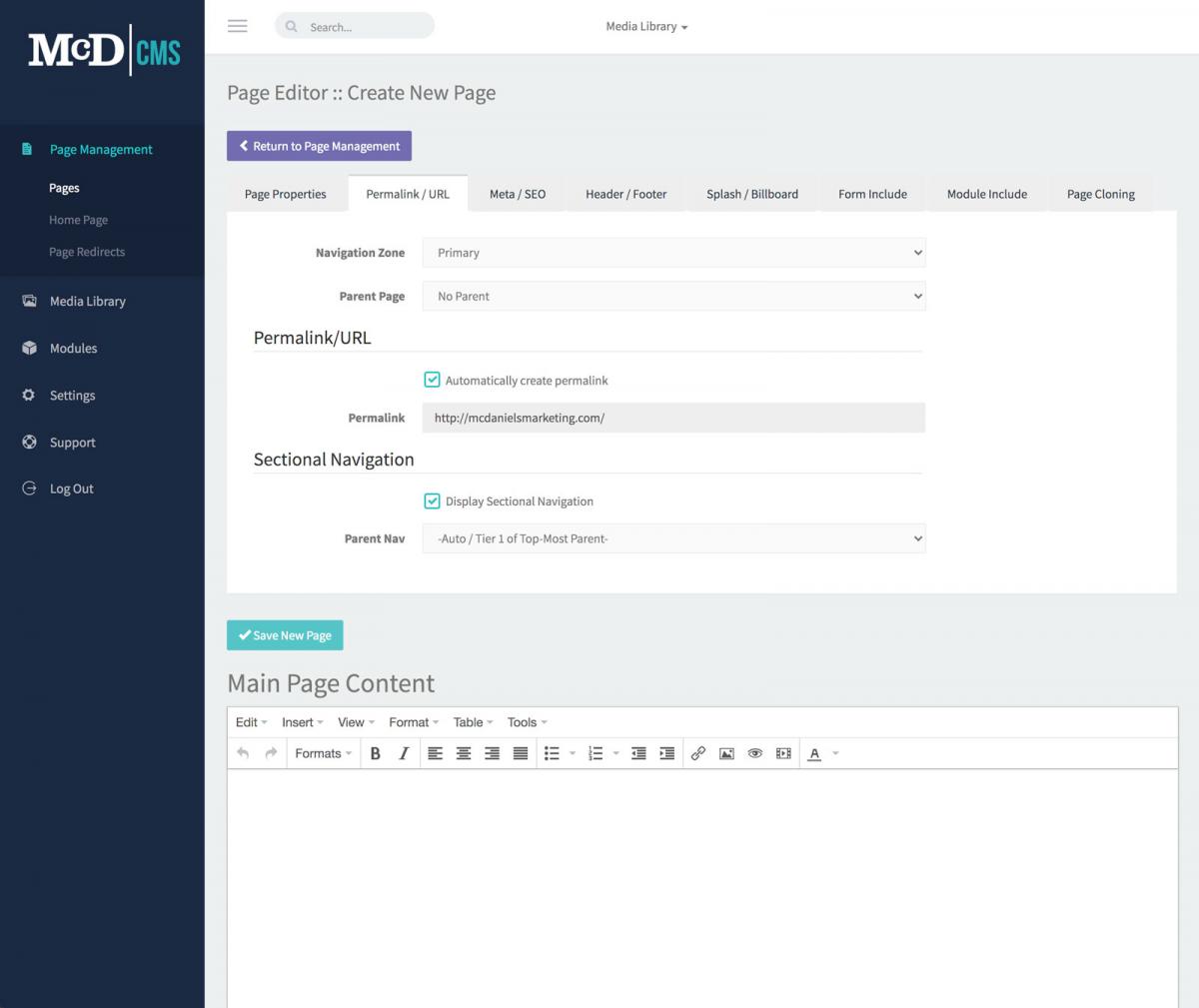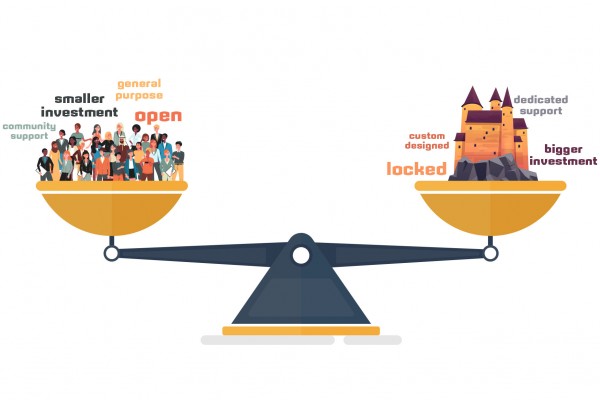


The Content Management System that drives your website, an open-source or a custom proprietary CMS, is an important decision that requires much consideration and can have effects on your business long after the decision has been made. The choice between an open-source and a custom proprietary CMS elicits strong reactions from both sides’ and many blogs have been written. These differing opinions can create a lot of confusion over what choice you should make in choosing a CMS. This article hopes to explain the similarities and differences of open-source and custom proprietary CMS without the bias that many web developers who are committed to a single platform may have.
Before we dive too deep into the differences between an open-source and a custom proprietary CMS it’s important to understand what a CMS is and why it’s so important to your website and overall organization. CMS stands for Content Management System and its basic functions include searching and retrieving, indexing, formatting, managing, and revising the data on your website. Most common systems also include functions that allow for SEO optimization, language support, and user roles.
These systems are important to most businesses as few users will have the technical skills to make the changes in the source code itself. By using a CMS, you can manage your content daily without the need for web developers. You can also create user roles that restrict editing rights, create templates for users to follow, and maintain responsivity on mobile devices easily.
Both an open-source and a custom CMS solve these problems in a similar way. Most have a user-interface that allows access to different management areas. For, example a page management section may allow you to add new pages, delete pages and edit existing pages. Most systems also have a plug-in (or module) management area that allow you to add and manage special functionalities such as calendars, directories, forms, etc.

The key difference between an open-source CMS and a custom proprietary CMS comes down to code. An open-source CMS’s code is available to the public for anyone to view, use and edit. By releasing code that anyone can edit an open-source CMS can leverage developers from around the world to keep their code up to date and create new functionalities without always direct costs to the end user.
The benefit to an open-source CMS is the massive development team. Rather then have a single group of developers that you need to rely on to maintain your site, anyone who has a knowledge of the source code can help you solve your problems. Whole communities of message boards, knowledge bases and social media groups have been created around these systems meaning help is rarely more than a Google search away. An open-source CMS is also less likely to become obsolete since you aren’t reliant on an individual group to keep your system’s source code updated.
An additional benefit to an open-source CMS is its low cost. Most of the systems are free to use. Plus, since anyone can develop in the system it is incredibly flexible. Most users will be able to find plug-ins that can add needed functionality to their site without having to pay developers. These low initial costs and flexibility have led open-source systems, like WordPress and Drupal, to dominate the web industry.

While it might seem obvious to choose the popular option with an open-source CMS there are reasons not every business opts that route and might prefer to go with a custom proprietary solution. In a custom CMS the source code is not available to the public rather it is privately owned and typically made specifically for an individual client. Unlike open-source code which is made for mass use and may not fit their exact needs, a business utilizing a proprietary CMS can know that the software is designed for their specific needs. This leads to proprietary software typically being more user friendly and requires less technical skills.
You also tend to have a dedicated support team with a proprietary CMS that can solve your problems without you having to search the web and message boards trying to find a solution. The dedicated support team will also test updates and fixes within your CMS to make sure these changes don’t cause additional issues. Open-source developers don’t have the ability to test in all possible environments which can lead to many updates causing issues elsewhere on the site.
These support teams can also design functionality within your site that may not exist in an open-source CMS since the demand is not there for it. While this code may be more expensive the users are maintaining exclusive use of the code since it is closed source and not available to the public. This could allow a company to maintain a leg up on their competition if their site has vital functionality that their competitors do not.
Note: The McD CMS offers the best of both worlds. It is built on an open source, PHP framework but is custom built with all the reliability, expandability, and security benefits of a proprietary CMS! Plus, our custom CMS has a view source tool built directly into page management, allowing you to easily make source code changes to your pages.
Everyone wants their website to be secure and safe from people who might attempt to compromise it. Custom proprietary CMS proponents will tell you that their sites are safer since the code is private. Meaning finding vulnerabilities in the code will be harder for hackers. They also argue that since finding vulnerabilities in your code won’t help them access additional sites you are less likely to be the victim of a random attacks.
On the flip side, open-source CMS proponents will argue that while hackers have access to the code to find vulnerabilities you also have the entire community of developers who can find and close those vulnerabilities versus vulnerabilities that might be missed with a single team of developers in custom code. They also point out that since the code can be updated by any developer familiar with the CMS it’s less likely for your site to become obsolete which could lead to your site being more vulnerable to attacks.
Every website is different, which means that every business’s needs are different when it comes their CMS. There’s no one-size fits all solution when it comes to choosing a CMS. At McD Digital we can help you define the goals for your site and choose a CMS that meets those needs. We also recognize that as important as choosing a CMS is, maintaining your CMS is crucial to keeping your site safe and operational. Our maintenance packages allow you to feel confident that regardless of what CMS choice you make your site will stay online and safe.
Learn more about your CMS options! Contact Randy McDaniels, rmcdaniels@mcdmarketing.com or 309-346-7412.
